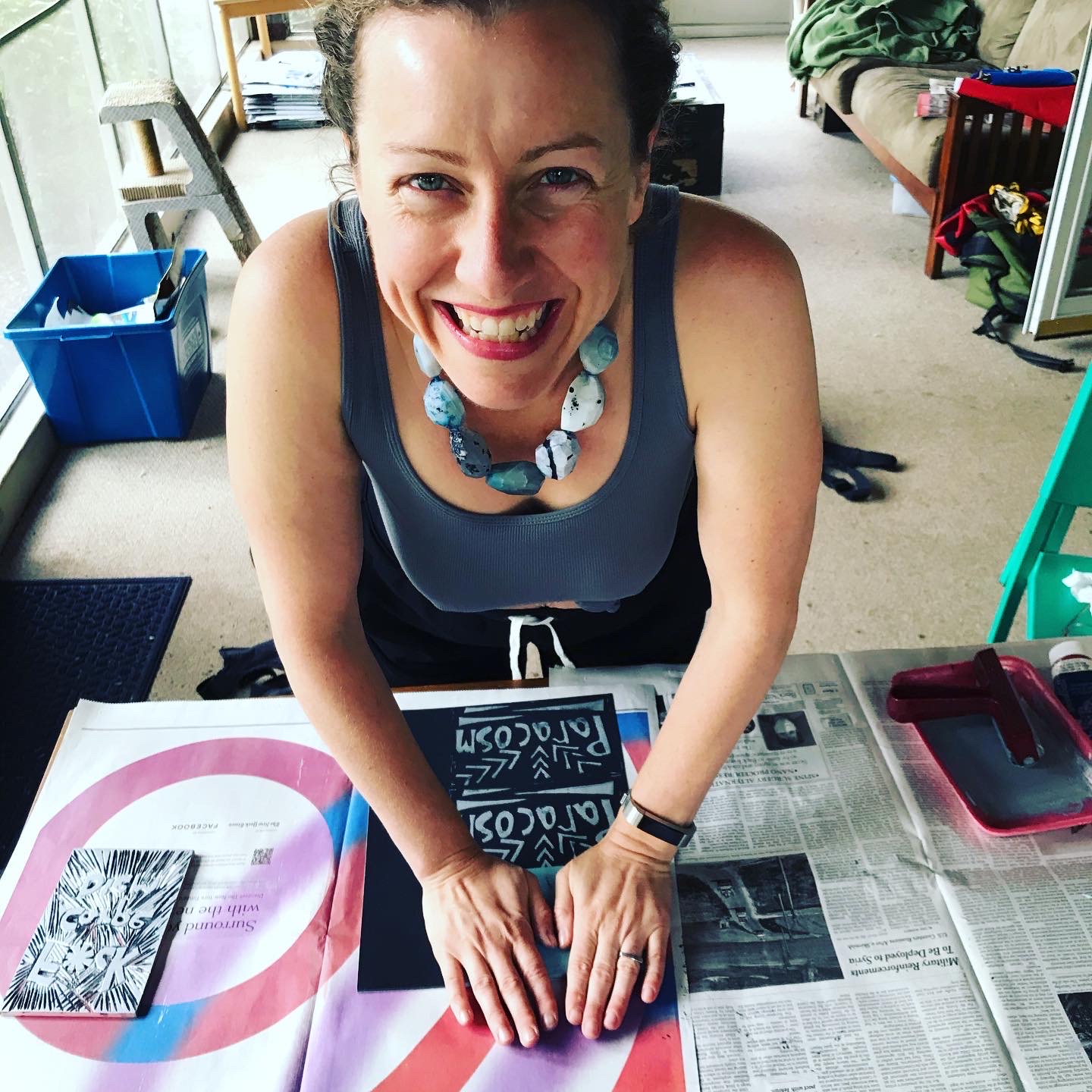Meet Teaching Artist Anna Farro Henderson


Anna Farro Henderson is a PhD scientist and an artist. She has a book forthcoming in 2024 about being a climate scientist and going to work in politics. Her Nature Library community bookmaking installation was up at the Landmark Center in Saint Paul in 2019. Her publications include The Kenyon Review, River Teeth, The Common, among others. She has been a recipient of a Minnesota State Art Board Grant, a Nan Snow Emerging Writer’s Award, an Everwood Farmstead Artist Retreat, among others.
You can find more information on her upcoming class (fall 2022) here and her current classes here.
What is your background in writing?
I am trained as a scientist but have thought of myself as a writer since the age of ten. When I was nine months pregnant with my second child, I started publishing in literary magazines. I was working in the US Senate at the time as an environmental policy advisor to Senator Al Franken. I worked on speeches and talking points, as well as background memoranda for the senator. Everything went through several edits before it got to the senator. The communication staff had a different perspective and questioned different things than the policy team or the state team. This was amazing training as a writer. I learned to consider the weight of each word.
What is your upcoming class about?
The class is called “What If,” and it explores science, technology, and environmental themes in fiction, poetry, or nonfiction. The title comes from a quote of Levar Burton’s on his podcast: “By simply accepting the invitation to contemplate the 'what if' we unleash our superpower on the very nature of possibility itself, oftentimes resulting in the seemingly miraculous.”
Delving into topics that we have anxiety about, like new technologies in genetic engineering and artificial intelligence or the climate crisis and environmental degradation, gives us opportunity to explore, even to play. In doing so, we can imagine other ways to live and engage in the future. The future is ours to make—poetry and stories have a big role in this.
What are you most excited to share with your students?
I’m so excited to have students who are interested in creative writing that engages with science, technology, or the environment. I can’t wait to learn about their particular interests: poetry about aliens, memoir about environmental work, climate fantasy, all of it. I’m really excited to see the ways students bridge science and art into their creative process. Preparing for the class I’ve gone back to books and poems, and the process inspired me to write new material, including this short essay in Brevity, "Writing in the Anthropocene."
Any upcoming writing projects we can look forward to?
I signed a book contract recently. The book is with the University of Minnesota Press, and it is made up of essays around being a climate scientist and going to work in politics. I’ve been thinking a lot about the ways that we tell stories and bring readers into experiences that they don’t have much background in. How do you share what it's like to be in these unique spaces? How do you convey the drama of the scientific process or of environmental policy debates?
What is the structure of your class?
The class includes a mix of short lectures, discussion, writing exercises, readings (in class), and small group discussions. We will talk about voice, structure, worldbuilding, and research (as part of the creative process). We won’t workshop student writing, but we will dedicate exercises and small group discussions to support students developing new and existing projects.